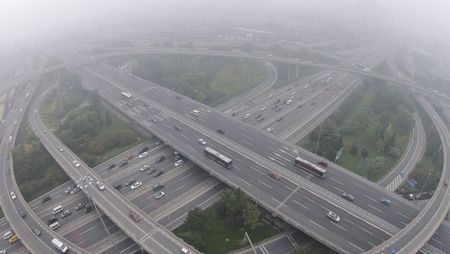By James B. Kelleher
(Reuters) - Corporate America's love affair with China has cooled for lots of reasons, from the slowdown in the Chinese economy to the flurry of crack-downs targeting Western multinationals.
A lawsuit filed in federal court in Arkansas presents another example of why U.S. companies may reconsider plans to move production to China: getting out of the country could be a lot harder than getting in.
According to the suit, filed by Arkansas toymaker Redman & Associates, the company's Chinese contract manufacturer suddenly demanded full and immediate payment on a huge shipment of goods in transit and destined for holiday-season shelves. This happened just after Redman went public with its plans to bring some production back to the United States.
The suit, which appears to be the first of its kind, comes as Chinese President Xi Jinping and U.S. President Barack Obama prepare to meet and amid growing signs U.S. companies are rethinking their investment in the world's second-largest economy.
A recently released survey by the U.S. China Business Council found "sagging confidence" among U.S. companies doing business in China and growing concern about the lack of transparency and due process, as well as the pace of economic reform.
Chris Neeley, head of a consultancy called Made in USA Works that helps manufacturers re-shore, said Redman's difficulties highlight the challenges other firms face.
"From what we can tell, there is some pushback from Chinese suppliers as U.S. companies try to move back home," Neeley told Reuters. "China does not want to lose any manufacturing."
Sales Chief Ent. (Hong Kong) Co Ltd, a contract manufacturer in China, has built Redman's Monster Trax, a popular, battery-operated ride-on toy since 2012. It did not require the U.S. company to pay for the products until 60 days after they shipped from China.
But when Redman, a Walmart supplier, announced earlier this year that it planned to reshore production of some of the toys as part of the retailer's "Made in USA" push, Sales Chief unilaterally changed trade credit terms. It demanded immediate and full payment for $3.4 million of inventory on the water.
In the lawsuit, Redman claims the move was "deliberately timed to cause maximum disruption" ahead of the holiday season.
The U.S. company alleges that Sales Chief "has made it known that it intends to disrupt and undermine any efforts to relocate manufacturing back to the United States."
In meetings with Redman representatives earlier this year, Ellen Liu, Sales Chief's executive director, "made clear her intention to derail the Made in USA initiative," according to the suit.
If that was the intent, the effort was a success with regard to Redman. To conserve cash and make the payment Sales Chief was demanding, the U.S. company was forced to halt the ramp-up of the Monster Trax production line it was building in Arkansas and to lay off more than a dozen workers.
"We're still here. We're still in business," Chairman and Chief Executive Mel Redman told Reuters.
But he says the company's timeline for reshoring is in chaos and its focus for now is confined to getting Chinese-built toys into stores before Black Friday.
Sales Chief has not yet responded to the lawsuit and U.S. lawyers representing the Chinese company did not respond to a request for comment.
China's competitiveness has suffered in recent years as costs for labour have tripled, natural gas has doubled and electricity has risen 60 percent, according to a recent study by the Boston Consulting Group.
"It's a very favourable environment for reshoring," Made in USA Works' Neeley said.
The spat between Redman and Sales Chief has not gone unnoticed by other companies mulling a move back to the United States. Neeley said other would-be reshorers he is working with are now "being a little stealthy about it," quietly arranging their switch so they can move with little advance notice to their Chinese suppliers.

The case, filed in the U.S. District Court for the Western Division of Arkansas, is Redman & Associates LLC v Sales Chief Ent. (Hong Kong) Co Ltd 14-CV 5277 TLB.
(Additional reporting by Jonathan Stempel in New York and Nathan Layne in Chicago; Editing by David Greising and Dan Grebler)
